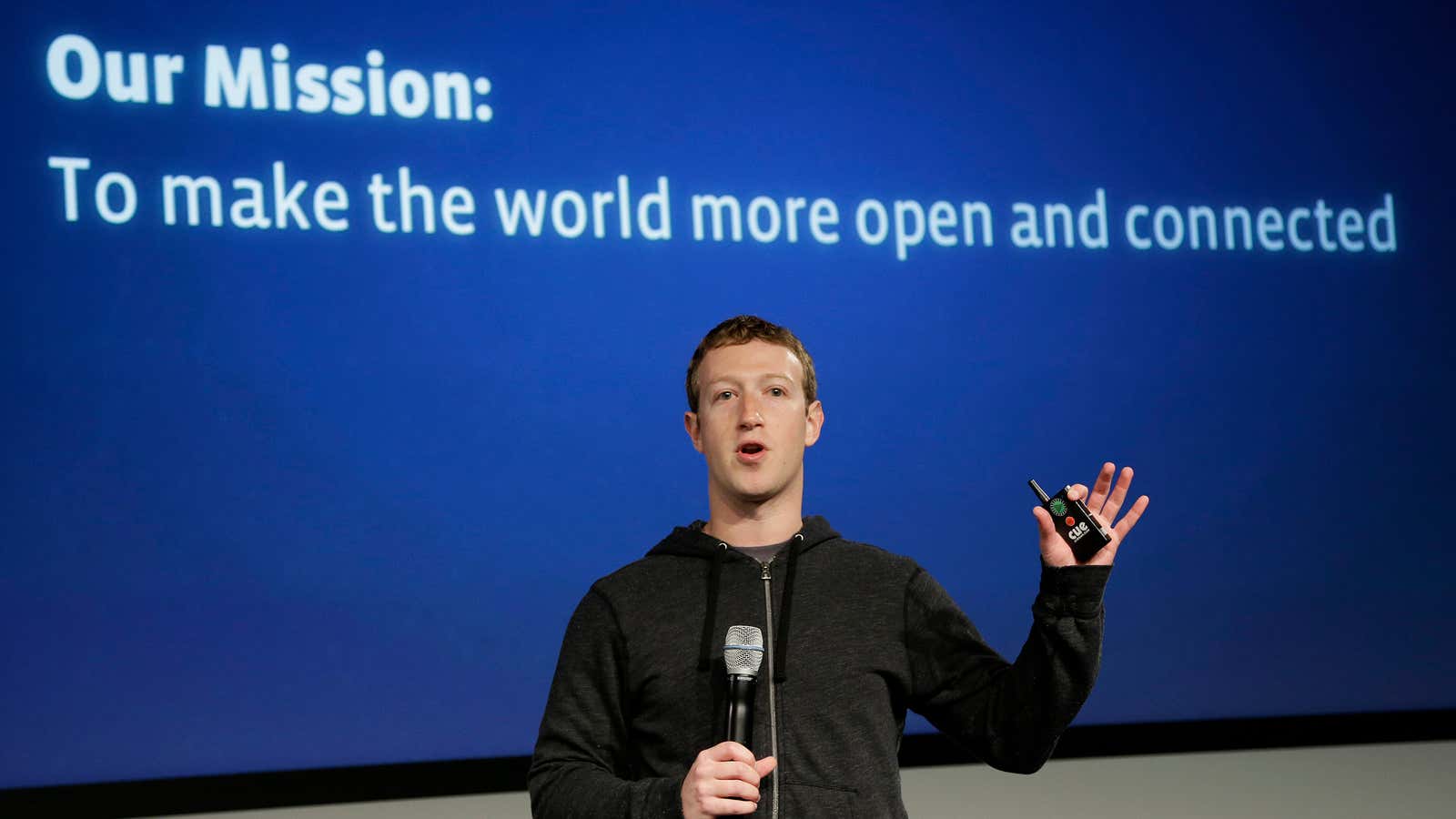Facebook CEO Mark Zuckerberg is joining with like-minded US tech execs, including LinkedIn’s Reid Hoffman, to fund a $50 million political organization backing comprehensive immigration reform, and down the road, education and funding for scientific research.
The group will be an issue advocacy non-profit, so direct donations to politicians aren’t allowed. It will be able to organize lobbying efforts, run advertisements and fund research. Efforts like that can help change the framework of a debate over time—consider investor Pete Peterson’s enormous influence over fiscal policy—but it’s not clear they can move votes in a short period. Another billionaire with a political organization, New York Mayor Mike Bloomberg, chose a more direct path to influence the gun control debate: He’s running election ads against opponents of gun control.
Will Zuckerberg’s group really make lawmakers sit up and take notice the same way?
The main interest Silicon Valley has in this debate is increasing the number visas for highly-skilled immigrants (read: engineers). The good news is that both of America’s political parties agree that more highly-skilled immigrants should be let in to the country. The bad news is that the issues that divide them will be tough for the new group, reportedly dedicated to a broad goal of simplifying the immigration system, to wade into.
The big battle lines for comprehensive reform are drawn around how to deal with low-skilled temporary workers and how to structure a path to citizenship for unauthorized immigrants already in the country. And, since some legislators want that path to citizenship to be triggered by improved border security, there’s the tricky matter of figuring out how to tell when it improves—something even the Department of Homeland Security can’t easily do.
While key legislators have yet to agree on an immigration reform bill, they are expected to have something in place by mid-April. When that occurs, the politicking begins in earnest, and advocates of reform will fight to preserve a fragile business-labor alliance and convince enough conservatives that a path to citizenship isn’t amnesty.
Labor unions and conservatives, the two stakeholders with the most power to blow up the deal, aren’t the most receptive audience for a collection of northern California billionaires. Zuckerberg’s organization is working with veteran political strategists, but the most important is Rob Jesmer. He coordinated the Republican Party’s Senate campaigns in 2012, a year that many expected would end in Republican triumph but ultimately floundered. If anyone can convince Republican senators that their election prospects depend on engaging with the growing population of Hispanic voters, he can.
The most important thing Zuckerberg’s organization could bring to an immigration push is what Washington calls the outside game: Making sure that lawmakers hear loudly and often from their constituents about reform, at town-hall meetings and their in-boxes. Zuckerberg’s primary co-conspirator in the organization is Joe Green, his former Harvard roommate, the creator of do-gooding app Causes and “entrepreneur in residence” at Silicon Valley venture capital firm Andreessen Horowitz. Green could be important in leveraging Facebook and other online platforms to encourage grassroots reform efforts, but there are bound to be questions about how appropriate it is for Zuckerberg to use his company to push his political agenda.
It is unlikely that Zuckerberg will have much impact this year. But if he maintains this effort to focus on the long-term drivers of growth the way Peterson’s web of institutions supplies Washington with deficit agita, in 10 years US politicians might be talking about the “innovation cliff” rather than the fiscal cliff. Doesn’t that sound better?
